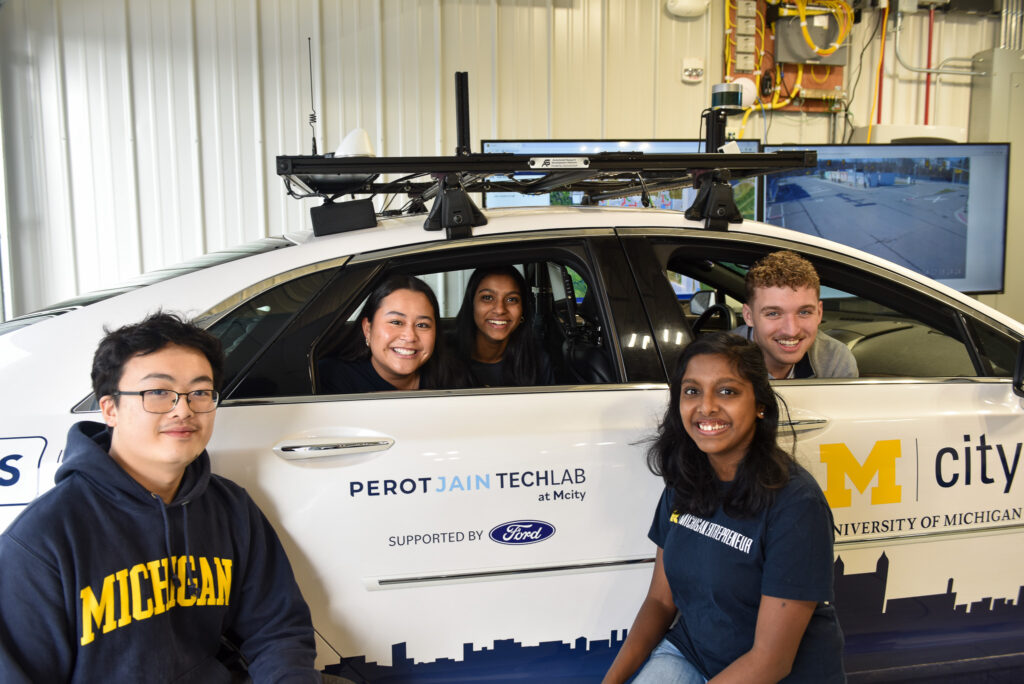PJTL at Mcity provides students with unique opportunities to experience entrepreneurship by working with startup companies that are building the future, specifically in the connected and autonomous vehicle industry.
The program pairs emerging transportation startups (Post-series A funding) with top-tier undergraduate and master’s students studying Engineering, Computer Science, and Data Analytics interested in tackling industry challenges defined by exploratory technical projects, with the goal of educating students through mentorship and immersive interaction with high-growth ventures.
The Center for Entrepreneurship (CFE) selects a group of early-stage startups every year to participate in their program. The 2024 cohort will be the ninth for the program, which has recruited companies from all over the world and played a significant role in attracting leading tech companies to have a presence in Southeast Michigan. This past summer, the CFE was aided by collaborations with program sponsors Perot Jain, Ford Motor Company, Ann Arbor SPARK, and the State of Michigan’s Office of Future Mobility and Electrification in recruiting impressive companies to the program that are tackling noteworthy technical and commercial challenges related to the broader adoption of connected and autonomous vehicle technologies.
“Perot Jain TechLab at Mcity is a vibrant nexus where talented students apply their technical know-how toward ambitious entrepreneurial projects that demonstrate and deploy state-of-the-art advancements in the connected and autonomous vehicle space,” said Nick Moroz, Director of Entrepreneurial Practice at the Center for Entrepreneurship, Director of the Perot Jain TechLab programs. “This program is known globally as a launching pad for high-impact careers and as a key driver of the advanced mobility ecosystem in Michigan.”
Each company in the 2024 cohort will participate in the year-long program with a student team of four focused on exploratory technical projects targeting the development, demonstration, and deployment of key autonomous vehicle technologies.
The student application for the 2024 cohort is now also live. If you are a U-M student that is interested in starting a career in the CAV industry, strongly consider applying.
Büyütech (Ankara, Turkey) – Büyütech was founded in 2011 to develop smart cameras and computer vision technologies for many different industries such as industrial machine vision, consumer electronics, retail, defense, and currently has more than 87K cameras operating in more than 120 countries. The goal of this project is to support the development of a precise and cost-effective ultimate perception solution that can detect objects in all weather conditions and determine their position in 3D by using different spectra sensors in stereo. The student team will work on to create ground truth dataset, cross calibration of different spectra sensors, stereo-vision, object and lane detection, and to control a vehicle with the Büyütech camera data at Mcity.
Retrospect Technology (Ann Arbor, USA) – Retrospect develops methods to assure and improve safety in automated vehicles from development through deployment. Their technology product is a software toolset which implements our patented safety monitoring methodology. In AV development, it helps customers identify latent safety issues. In use in AV deployment, it helps customers pick up on clues of latent safety issues whose low occurrence rates make them nearly impossible to catch in development and yet impossible to not encounter in mass deployment. The goal for this project is for the student team to contribute to the emerging field of autonomy safety measurement and validation by collecting new datasets at Mcity, testing various safety-driven driving scenarios.
Capoom (San Francisco, CA & Istanbul, TK) – Capoom is a company that combines AI with procedural modeling technologies to automate the process of generating photorealistic, lightweight, intelligent, and accurate 3D models. Their primary focus is on assisting customers in creating digital replicas, known as “digital twins,” of their real estate properties. These digital twins can be utilized for various purposes such as customization, evaluating renovation costs, and even constructing entire virtual cities. For this project, students will utilize off-the-shelf camera equipment to collect 3D images of the Mcity living lab and will leverage semantic image segmentation methodologies and deep learning to further develop an algorithm that can identify objects, focusing on roads.
Fleet Lab (Ann Arbor, MI) – Fleet Lab supplements traditional school bus systems with specially equipped electric vans to make K-12 student transportation safer, more effective and more equitable. They provide a holistic solution including driver training and monitoring, vehicle lease and software tools. The goal of the project is to further enforce driver and student safety procedures at pickup/dropoff stops through the use of external cameras and computer vision models.
Flare (Liverpool, ENG) – Flare is a mobile application for revolutionary incident detection, specifically targeting micromobility use cases such as electric scooters. Large global brands such as Deliveroo, JustEat and Tier use Flare to protect their employees & customers. For this project students will detect rider behaviors that could increase safety risks in real-time. Students will utilize various data sources on electric scooters to determine harsh braking, swerving, crashing, jumping from curbs and more.
Drover (Los Angeles, CA) – Drover is a pioneer in the field of edge-based application of AI-powered computer vision sensing software capable of being deployed on various Light Electric Vehicle (LEV) form factors and hardware platforms. Drover’s patented technology leverages deep learning and convolutional neural networks for infrastructure classification, different types of object/person detection, and early stages of collision warning and avoidance. The goal of this project will be for students to demonstrate proof of concept for Advanced Rider Assistance Services (ARAS) deployed on low cost LEVs. The project will utilize limited off the shelf additional to deliver ARAS for e-mopeds, e-bikes and other 2 & 3-wheel LEVs.

